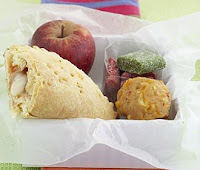The deal is that both are true, or not true, depending on the individual. The key is to find out which approach works for you.
A research study conducted by David Levitsky of Cornell University found that some people who snacked in the mid-morning and mid-afternoon felt hungrier at lunch and dinner. Although they didn't eat more at these meals, their total number of daily kilojoules was higher because of the snacks.
Read more about healthy snacks right here.
Other studies say snacking can lead to eating less food at regular meals. One study of overweight men found that those who ate a little bit every hour consumed 27% fewer kilojoules at lunch. And studies from the Proceedings of the Nutrition Society show that eating more frequently helps control appetite, preventing us from overeating at meals.
Research also suggests that snacking when you're not hungry has little effect on your appetite at a later meal. The urge to snack can stem not from hunger but from pure impulse, stress, boredom or the influence of others. Recognising these types of urges may help people make wiser decisions about snacking.
Experts in behaviour change say that, although most impulses pass on their own within a short time, emotions like stress and frustration should be addressed, but in appropriate ways that don’t rely on food.
Control your portions
Another consideration about snacks relates to portion size. The American Institute for Cancer Research emphasises that eating too much, even wholesome foods, isn't healthy. Snacking directly from a package, for example, often leads people to unintentionally eat the entire contents.
Helpful strategies include ordering a small serving when eating out and, at home, portioning out one handful of a snack onto a plate or napkin rather than eating directly from a package.
Choice of food is also important.
Fruits and vegetables make excellent snacks, especially since their proportion of nutrients to kilojoules is usually good.
Further research may bring us a clearer answer about whether snacking helps or hinders weight control. Perhaps looking for one simple answer is expecting too much. People whose meals aren’t spaced too far apart may want to see what happens if they limit themselves to only water between meals. Others may prefer to snack, but focus on making wise choices about what and how much to eat.
(Updated by Carine Visagie, July 2011 - health24.com)

0 comments:
Post a Comment